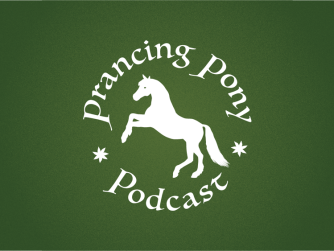Shout for joy with Fingon as day breaks on the morning of the Fifth Battle, Nirnaeth Arnoediad, in Chapter 20 of The Silmarillion. Shout for outrage at the treachery and brutality of Morgoth’s forces (these are the things we can do without). Elves and Men will shed Unnumbered Tears after Morgoth’s fears of defeat are turned into victory when the Dark Lord unleashes an army more terrible than any ever before seen in Middle-earth. We dig deep into Tolkien’s early drafts to answer a listener question about Elvish agriculture, Alan goes out of his way to insult several states, and Shawn ignores a simple request from his co-host and reads what he wants, when he wants.
For an excellent and reliable analysis of Quenya grammar (and Tolkien’s other invented languages), visit the Ardalambion site by Helge K. Fauskanger at https://folk.uib.no/hnohf/
Recommended Reading:



Even though I have listened to your podcast for a while now and have finally reached the year 2018, there has been one question, I’ve kept thinking about. It has to do with the most famous battle cry in elvish history “Utulien aure” and its response “Auta i lome”. Knowing a bit about Tolkien’s language it is quite clear that they are not speaking Sindarin but Quenya. But why is that so?
Of course, Fingon has knowledge of this language but why would he use it to speak to an army with only a small percentage of Noldor while Quenya has been banned a long time ago. Most of the elves and men wouldn’t be able to understand him at all.
Later, Hurin does the same shouting “Aure entuluva”. He might now a bit Quenya from his time in Gondolin but it clearly isn’t his mother tongue, thus it doesn’t seem to be fitting for this occasion where there are only orcs to hear him.
Is there an in-universe explanation for using Quenya instead of Sindarin or did Tolkien did not think this through? Might it be a relict of an older version of the story or did the Elves change the story a little bit afterwards to glorify the warriors?
Tolkien says “the High Speech of the West was spoken only by the lords of the Noldor among themselves”. It’s possible to interpret this very narrowly to mean that Quenya was only spoken by Noldor to other Noldor. However, it’s also possible that the Noldor taught and spoke Quenya to the Edain who were their vassals, in their own halls and territories far from Thingol.
At the Nirnaeth Arnoediad, there were only two Sindar in the battle (Mablung and Beleg). Thingol wasn’t there and did not send any official force. Therefore, the overwhelming majority of the combatants on the side of the Noldor were Noldor and Edain. The best in-universe explanation is that the broader interpretation of “among themselves” is the right one. The Noldor must have taught the Edain who followed them the Quenya tongue, and spoke it at the Nirnaeth Arnoediad because there were virtually no Sindar around. Húrin spoke it for the same reason; he’s there fighting alongside Noldor speaking Quenya, so he’s speaking Quenya.
There are other in-universe explanations we could come up with. Maybe one could argue that the speech has been “translated” for an Elvish account of the battle, which The Silmarillion is (technically a Mannish adaptation of an Elvish account). But I think this is unnecessary. I think it’s reasonable to assume that Noldor and their Edain friends spoke Quenya when they were far from Thingol’s sphere of influence.